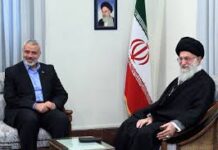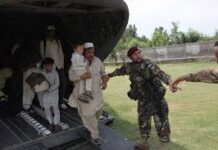Context

The North Atlantic Treaty Organization (NATO) was born in 1949 in the aftermath of World War II. NATO’s first Secretary General, Lord Ismay, famously described the organization’s goal as: “to keep the Russians out, the Americans in and the Germans down.” With the end of the Cold War and the Warsaw Pact, the traditional rationale for NATO’s existence vanished, and the organization searched for a new raison d’etre that could keep it united in the face of new emerging threats.
NATO’s Lisbon meeting, held in November 2010, was only the third such strategic meeting since the end of Cold War. Like Lisbon, the Chicago summit is aimed at setting direction for the next decade and managing the transition and role of NATO in Afghanistan. However, at a broader level, the alliance is dealing with a three-prong threat: a resurgent Russia, extremism and deteriorating relations with the Islamic world, and emerging China.
Analysis
European Dynamics
The interplay of the political dynamics between European powers such as France, Germany, Russia, and UK have also evolved, with the Scandinavians and Eastern European states becoming strong supporters of NATO’s mission in Iraq and Afghanistan, as compared to France and Germany. Controversy also emerged as a result of France offering to sell arms, including its state-of-the-art amphibious assault ship (Mistral) to the Russians, which NATO feels is contrary to its policy towards Russia.
Furthermore, the tensions between NATO and Russia have fluctuated over the American Missile Defense System meant for Europe. While NATO maintains it’s designed against threats emanating from Iran, Russia believes it’s a hedge against its missiles. The continuation of these frictions has led President Putin not to attend the G-8 session, to be held around the NATO summit in Chicago.
The Muslim World
Faced with its own economic difficulties and negative perception in the Islamic world, American dependence on NATO and other regional allies, nonetheless, has increased. For example, in the Middle East, recent events related to Libya, Syria, Yemen, and Iran, have amplified the role of Turkey and Gulf Cooperation Council (GCC) countries. Meanwhile, in the aftermath of the Arab revolts, Egypt’s fate hangs in the balance. The country has been forewarned that if it renegades on its treaties with Israel, it faces suspension of American military aid. Pakistan awaits a similar fate for suspending NATO’s Afghan supply routes. In the Asia Pacific, the US is building partnerships with Indonesia and Malaysia. On the other hand, frustrated by Pakistan’s role, the shift is towards India and Bangladesh in South Asia.
While Turkey, a NATO member, has taken on an assertive role as it relates to the situation in Syria, and previously in Libya, its demand for an Israeli apology over the flotilla incident has complicated affairs with the alliance. Moreover, the incident gave a boost to the credibility of Turkey in the Islamic world at the expense of Sunni Arabs and Shiite Iran.
According to Turkish media sources, the country is preventing Israel from attending the NATO summit in Chicago, despite pressure from US and other European powers. “There will be no Israeli presence at the NATO meeting unless they issue a formal apology and pay compensation for the Turkish citizens their commandos killed in international waters,” a senior Turkish official has commented referring to Mavi Marmara incident.
Additionally, Turkey has vetoed Israeli attempts to deepen its relations with NATO or to open an office in Brussels. Turkey’s foreign minister has stated, “The army of a country which you call a partner killed our citizens upon a political order given by its administration. We do not call this kind of country a partner.”
The Turkish position on Israel is similar to Pakistan, albeit less vocal, as it relates to the apology it has demanded of US for the Salala incident. Assessing from the media reports, it’s not clear if NATO did not invite Pakistan for suspending NATO supply lines, or if the country declined to attend the summit in the absence of an apology.
Conclusion
In the future, NATO’s strategy in the Islamic world is likely to be two-prong: first to prevent any coalition to develop along religious lines that is detrimental to its interests, and secondly, to escalate issues that hamper ties between emerging powers and Islamic nations. For example, in 2010, trade relations between Pakistan, Iran and Turkey showed signs of gradual progress. However, western focus and sanctions on Iran’s nuclear program has prevented any such regional economic cooperation to flourish. Similarly, the Iran, Pakistan and India gas pipeline project has met a similar fate.
While the danger from extremists is still real, economic challenges are forcing European members to search for more than just military means to tackle it. However, it is China that has the potential for becoming the real motivating force for the alliance. The mounting prominence of India in NATO’s realignment further justifies this estimate. For dealing with China’s rise, NATO would eventually want Russia on its side while preventing any partnership to develop between China and the Islamic nations. While the focus of the Chicago summit may be on the transition in Afghanistan, it is this premise that will define NATO’s future posture in the region.



